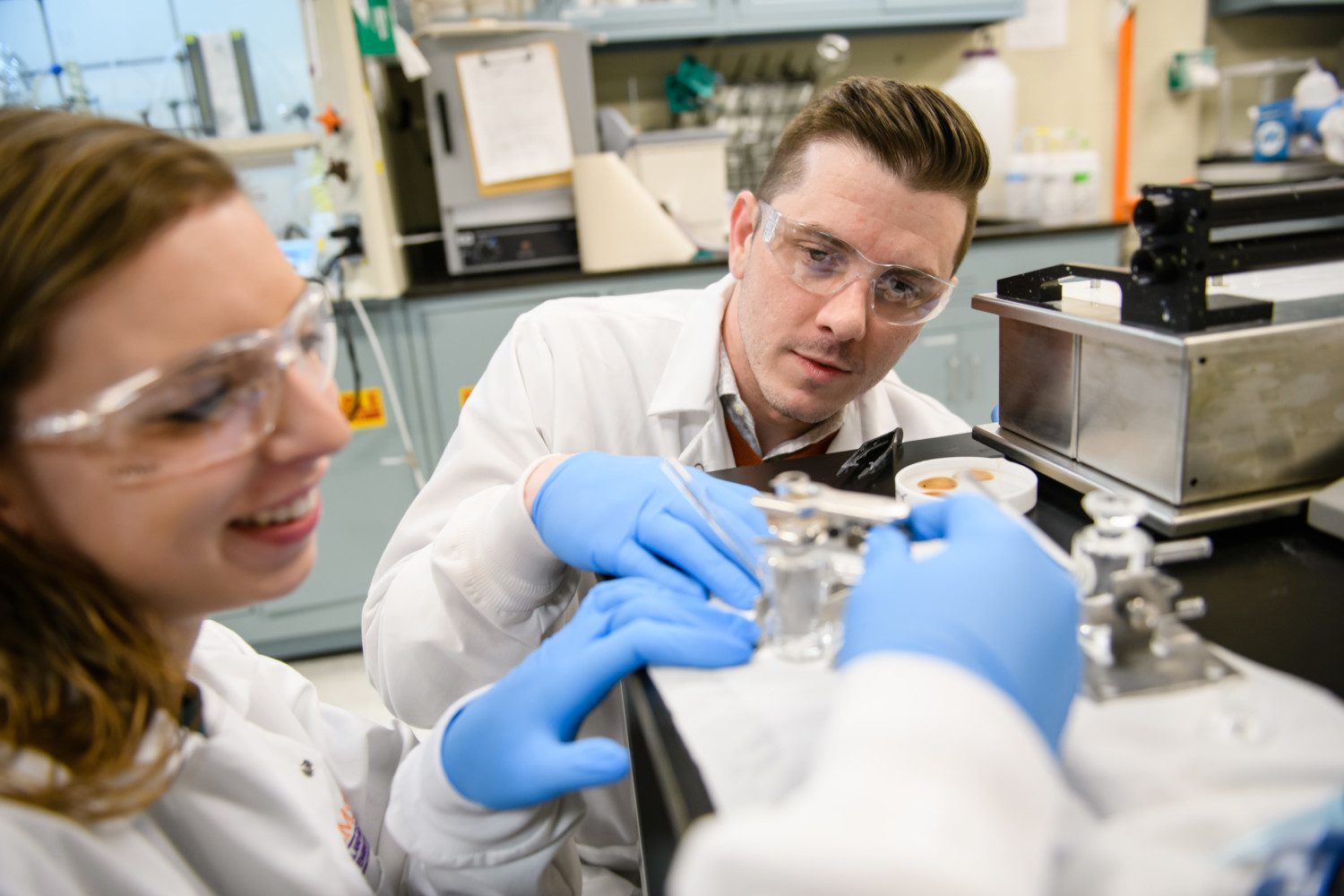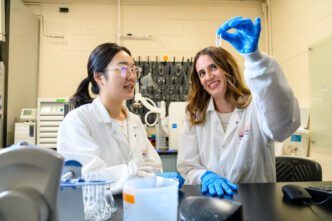Eric Davis of Clemson University is joining the quest to create a battery that would help utilities introduce more renewable energy to the electrical grid and reduce the amount of fossil fuel that needs to be burned.
Davis, an assistant professor of chemical engineering, has launched a new research project with the help of a $566,359 CAREER award from the National Science Foundation.

His goal is to develop new materials that would reduce the cost of large-scale energy storage technologies, such as redox flow batteries.
Davis is beginning his research as growing concern about climate change leads to new curbs on greenhouse-gas emissions across the country.
California set a goal last year to rely solely on zero-emission energy sources for electricity by 2045. Minnesota, New Mexico, New York and Washington are also considering carbon-reducing legislation.
Developing better batteries would help address one of the central challenges holding back more widespread adoption of solar and wind power.
If renewable energy is going to compete with fossil fuels on cost, utilities are going to need an economical way to store the energy they harvest when it is sunny or windy. Then the reserves could be tapped when the sun and wind are unavailable.
Davis plans to focus on the nanocomposite materials that are used to make the membranes that go inside utility-scale batteries. Those membranes account for about 30-40 percent of battery cost, he said.
A better understanding the physics of the materials could lead to membranes made of lower-cost materials, Davis said.
“I think that by moving away from these expensive materials into something much cheaper, you start to bring this technology to the forefront,” he said. “People will start to open their eyes and say, ‘Wow, we can get similar results from something that costs about the same as what we’re doing now but has a significantly less environmental impact.’”
Funding through the CAREER award supports five years of research.
David Bruce, chair of the Department of Chemical and Biomolecular Engineering at Clemson, said CAREER awards are among the nation’s highest honors for junior faculty members.
“CAREER awards are highly competitive, and Dr. Davis is richly deserving,” Bruce said. “He exemplifies the role of teacher-scholar through education and research and the integration of the two.”
Also as part of the CAREER award, Davis has developed an educational plan aimed at recruiting and developing the next generation of scientists ready to tackle challenges in polymer science.
His plan includes developing a STEM-based afterschool program at Seneca Middle School.
At Clemson, Davis plans to establish a state-of-the-art polymer characterization lab. He plans to recruit undergraduate researchers from Clemson’s PEER and WISE program and other initiatives that support students who are underrepresented in engineering and science.
Further, he plans to incorporate his research findings into a new elective course for seniors and graduate students.







